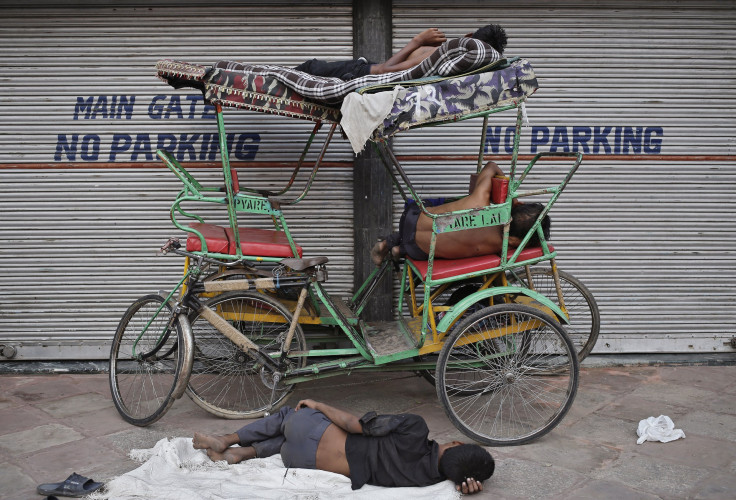Indian Government Clears Controversial E-Rickshaw Amid Concerns Over Vehicle's Safety Standards

Indian roads will soon have battery-operated vehicles -- e-rickshaws and e-carts -- after the federal government approved the vehicles' roadworthiness with an amendment to the Motor Vehicles Act of 1988, Mint, a local newspaper reported Wednesday. The clearance has been reportedly provided amid concerns regarding the quality of the vehicles' components.
The government reportedly released a notification late last week stating that the three-wheeled vehicles can carry only four passengers excluding the driver, and transport loads less than 40 kilograms, or about 88 pounds. It also stated that the vehicle can travel at a maximum speed of about 15 mph. The approval, which has reportedly been welcomed by sellers of the e-rickshaws, has also invited criticism from experts who say that the government acted hastily.
“The government has rushed into the e-rickshaw notification undermining the safety of commuters,” S.P. Singh, a senior fellow and coordinator at the Indian Foundation of Transport Research and Training, or IFTRT, said, according to Mint.
All registered e-rickshaw associations will need to submit the models of the vehicle to their respective state transport authorities before Nov. 30, the government notification stated, according to Mint. Models of the e-rickshaw will reportedly also undergo tests specified by New Delhi under the Central Motor Vehicles Rules of 1989. However, according to Mint, the notification failed to specify the details of the tests that will be carried out.
"Ideally, the vehicles are tested before being regularized. But in this case, the specifications have been laid down and the existing vehicles will have to comply with them. This may not be possible as these vehicles don't follow any Indian standards," Singh said, according to The Economic Times.
Experts reportedly raised concerns over the safety of commuters as the current models of e-rickshaws are assembled pieces that were imported mostly from China. According to Mint, small units in New Delhi and the neighboring state of Uttar Pradesh contracted with assembling the vehicles do not follow the proper procedures.
“It is great that this has happened,” Jitendra Thukral, owner of Thukral Electric Bikes, a company that assembles e-rickshaws in New Delhi, told Mint. “People used to call us illegal but now we are legal. It is good. No problem.”
In July, a 3-year-old boy died after his mother, who was carrying him, was hit by an e-rickshaw. The incident prompted the Delhi High Court to ban the vehicle from the city's roads. The court reportedly said that the vehicle was not only illegal but also hazardous to citizens.
“Creating standards for anything in this country is a joke,” Dinesh Mohan, a road safety expert, told Mint. “There seems to be no method here. I don’t understand what was the hurry. It takes at least two years to come up with a standard. And here we are talking about putting a limit on the number of people the vehicle can carry. That will be flouted because the economics of running that thing doesn’t support it.”
© Copyright IBTimes 2025. All rights reserved.





















